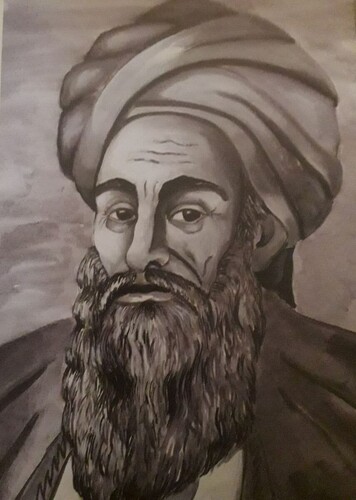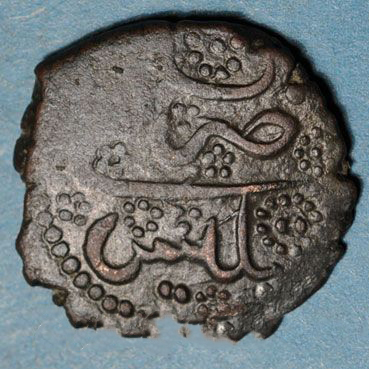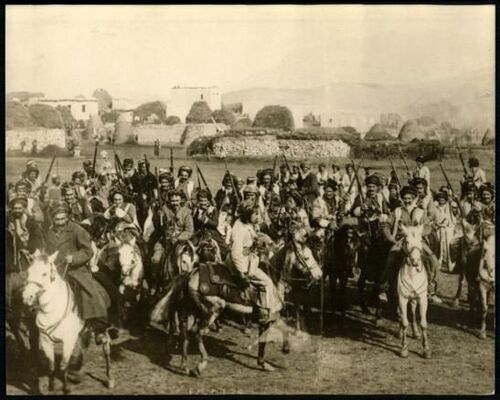I would like to begin this article with an instance. The British writer, Rudyard Kipling, says: "If the history was narrated like a story and the moral lesson in it was discussed, people would never forget it."
"Rudyard Kipling's" words are true because our history, as Kurds, has always been written by the oppressors of Kurdistan misleadingly and what we have today, as history, is narrated by the storytellers and singers orally passed down from one generation to the other. This is the reason for the patriotic figures and those who love their land to write down the oral history in their books.
This article is written based on the information about Mir Badrkhan I could find in several books and sources that have been published. The sources have not been mentioned here.

Badrkhan Avdalkhan or Badrkhan Bag son of "Abdullah Khan", was born in 1803 in Jazir of Botan in the Northern part of Kurdistan. However, there are different opinions on his birth date. Some historians say he was born from 1803 to 1806. Badrkhan Bag was from the "Azizan" clan. "Sharafkhan Badlisi" has mentioned in his book, Sharafnamah, that the Azizan clan used to be from Yazidis and later they became Muslim.
Mir Badrkhan concurred with Botan in 1830. He became Mir Mohammad's ally who was the Amir of Soran.
Once Mir Badrkhan visited a school and told the master: "If any student can read a single page flawlessly, I will make him the king." Mir Badrkhan intended to encourage them to study hard to be successful. He also sent many young men to Europe to study the sciences that were popular at that time and learn military techniques.
Mir Badrkhan served his nation well. During his reign, not only justice was commonly spreading but also there was no corruption in his state. He built two factories for making gunpowder and rifles in Jazir City. He also minted coins under his name; on one side of the coin was written "Badrkhan, Amir of Botan" and on the other side, it was written "1258 Hijri".


Mir Badrkhan was able to gather more followers and anyone who committed a crime would be punished severely, anyone who would steal could lose their hands for it. He donated thousands of hectares of land to the farmers and the farmers would give Mir Badrkhan 3% of their products which was much less than what the Ottoman state would take of the farmers' products. He also would help the poor financially. All these characteristics made the people feel safe and happy to have such a man as their Amir.
His ruling method was so serious that no one could let themselves commit corruption or crime in his land because they would be expelled from his territory. During Botan's reign and power, security was preserved.
Two American tourists called "Rossest and Bratt" came to Botan at that time. They stayed there for four weeks without facing any troubles. They also saw how well-behaved the people and their lords were and how much they loved their Amir.
Mir Badrkhan's justice included the religious minorities because he always tried to see all the people equally.
Mir Badrkhan had a good relationship with the Armenians and he decided that if anyone married an Armenian woman, he would help them out. The Armenian young men voluntarily participated in Mir Badrkhan's army making it more powerful. Mir Badrkhan had several Armenian consolers among his trusted men such as "Dumstihan Mankoliyan, Ojansi Shalktrin, and Mir Marto".
This clearly indicated how much the minorities' rights were important to Mir Badrkhan and that he included them in his governmental affairs. "Mir Jaladat" has retailed an instance of Mir Badrkhan's justice and said: "There was a river called "Cham Jihou" or "Jihou" River near "Ibn Omar" part of Jazir. The Jews would go to this river to perform their religious rituals; the Kurdish people would stop them from going to the river. One day, the Jewish rabbi went to visit Mir Badrkhan to complain about this situation. He made a sign with his hand to make Mir Badrkhan understand but he did not say the name of that place directly. Mir asked what was the name, but the rabbi did not say the name again and he only made signs with his hand. Mir Badrkhan smiled and said, the name of that place is "Cham Jihou" or "Jews' River". He decided that the river is a sacred place for the Jews and no Kurdish or Muslim man can prevent the Jews from visiting it and they must not change the place in any way."

Then the Ottomans were occupied in fighting the Egyptians, Mir Badrkhan took the opportunity to expand his territory and try to gain Kurdistan's independence, thus, he added the Mukeriyan region all the way to Botan to his ruling state.
After Mir Badrkhan enhanced his economic, military, political, and social conditions in 1835, gradually he improved his state as an independent country and announced Jazir of Botan as his capital city.
In 1838, Mir Badrkhan helped the Ottomans to defeat "Saeed Bag's" state. The Ottoman Sultan granted Mir Badrkhan the title of "Amedi Colonel". In 1839, Mir Badrkhan's army joined the Ottoman army to fight "Ibrahim Mohammad Ali"; this battle was fought in "Tarib" near "Antabiya".
Mir Badrkhan did not try to make his own family or clan to be more powerful, but he also attempted to establish all parts of the Great Kurdistan with widespread equality by treating all in a democratic and just way. In the next part of this article, we will discuss Mir Badrkhan's positive characteristics.
To be continued…








